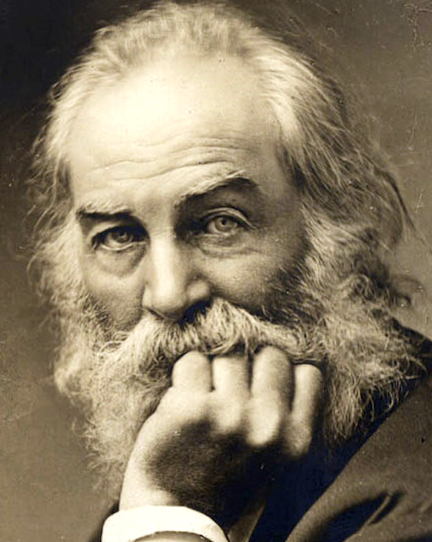On this date in 1819, Walter Whitman was born on Long Island, N.Y., the second of nine children born to Louisa (Van Velsor) and Walter Whitman, who had Quaker ties. After working as a clerk, teacher, journalist and laborer, Whitman wrote his masterpiece, Leaves of Grass, pioneering free-verse poetry in a humanistic celebration of humanity, in 1855. Emerson, whom Whitman revered, said of Leaves of Grass that it held “incomparable things incomparably said.”
During the Civil War, Whitman worked as an army nurse, later writing Drum Taps (1865) and Memoranda During the War (1867). His health was compromised by the experience and he was given work at the Treasury Department in Washington. After a stroke in 1873, which left him partially paralyzed, Whitman lived with his brother, writing mainly prose, such as Democratic Vistas (1870).
Leaves of Grass was published in nine editions, with Whitman elaborating on it in each successive edition. In the preface of the 1855 edition, Whitman wrote, “This is what you shall do: Love the earth and sun and animals, despise riches, give alms to everyone that asks, stand up for the stupid and crazy, devote your income and labor to others, hate tyrants, argue not concerning God.” In 1881, the book had the compliment of being banned by the commonwealth of Massachusetts on charges of immorality.
Whitman was influenced by deism and was a religious skeptic. Invited in 1874 to write a poem about the Spiritualism movement, he responded, “It seems to me nearly altogether a poor, cheap, crude humbug.” (“Walt Whitman: The Song of Himself” by Jerome Loving, 1999) Biographers continue to debate Whitman’s sexuality, and he is usually described as either homosexual or bisexual in his feelings and attractions.
He died at 72 of pleurisy and tuberculosis in Camden, N.J. Robert Ingersoll delivered the public eulogy at the cemetery. (D. 1892)


